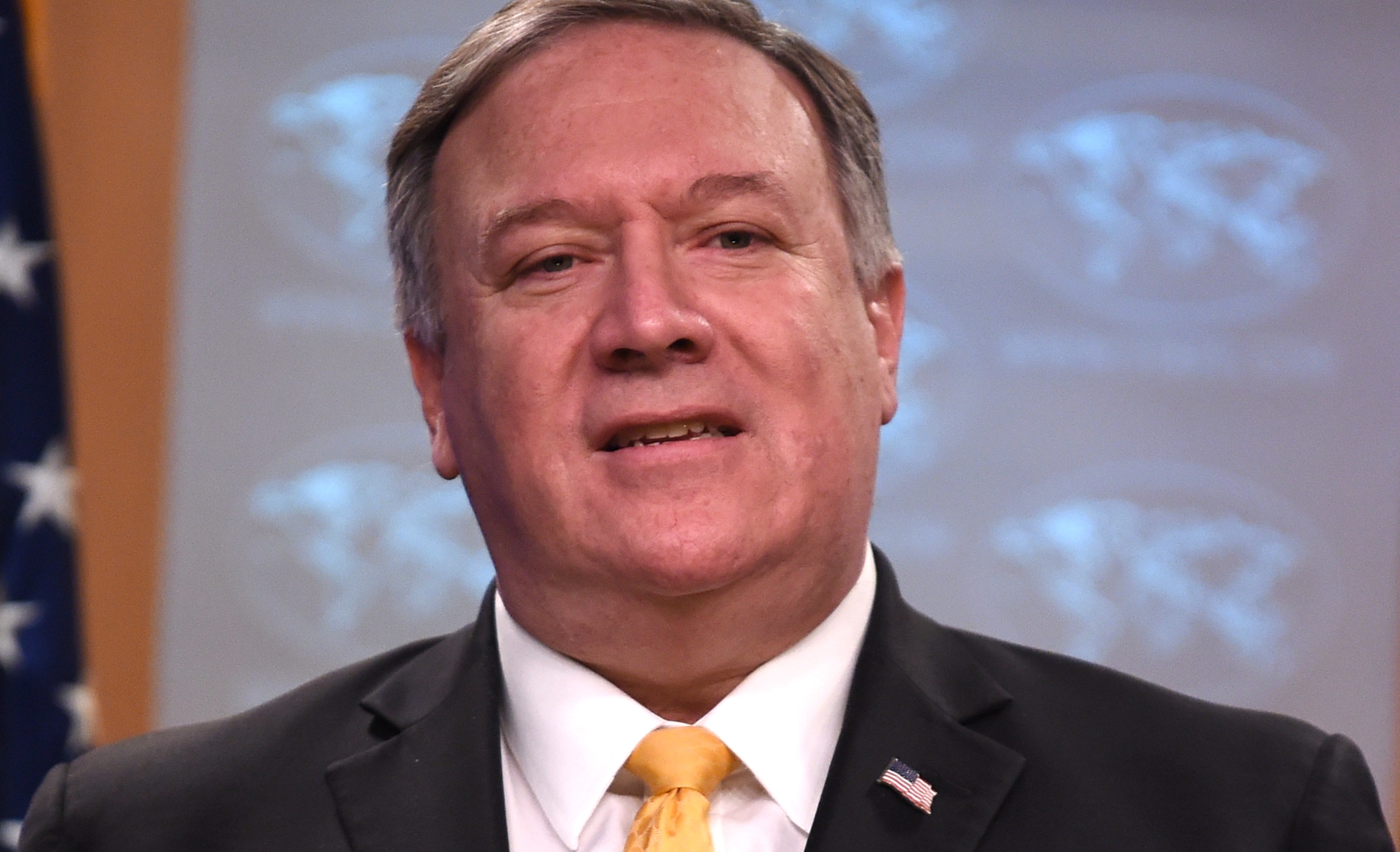US bolts Cold War missile treaty as Russia warns of arms race
US Secretary of State Mike Pompeo announces the withdrawal from the INF Treaty (Eric BARADAT )
Washington (AFP) – The United States said Friday that it would exit a landmark Cold War nuclear missile treaty due to purported violations by Russia, which has warned of a new arms race in retaliation.
Washington says that a new Russian medium-range missile system breaches the Intermediate-Range Nuclear Forces Treaty, although US officials also have an eye on China as the 1987 pact constrains the United States but not the rising Asian power.
President Donald Trump said the United States was suspending its obligations under the INF Treaty as of Saturday and started a process to withdraw in six months.
Brokered by then US president Ronald Reagan and last Soviet leader Mikhail Gorbachev, the treaty has banned ground-launched missiles with a range of 500 to 5,500 kilometers and ended a dangerous build-up of warheads in Europe.
“The United States has fully adhered to the INF Treaty for more than 30 years, but we will not remain constrained by its terms while Russia misrepresents its actions,” Trump said in a statement.
Secretary of State Mike Pompeo said that the United States, which formally announced its concerns two months ago, had raised the alleged treaty violation with Russia more than 30 times.
“Russia’s violation puts millions of Europeans and Americans at greater risk, it aims to put the United States at a military disadvantage and it undercuts the chances of moving our bilateral relationship in a better direction,” Pompeo said.
But Pompeo said that the United States was still willing to talk to Russia in hopes that it comes into compliance.
“The United States is hopeful that we can put our relationship with Russia back on better footing, but the onus is on Russia to change course from a pattern of destabilizing activity, not just on this issue but on many others as well,” Pompeo said.
– Russia warns of arms race –
Russian President Vladimir Putin, who has sought a warm relationship with Trump but is widely reviled by the US establishment earlier declared that the US withdrawal would set off a new arms race.
Ahead of the US announcement, Kremlin spokesman Dmitry Peskov voiced regret and told reporters that Washington had decided “a long time ago” to “break the treaty.”
NATO said in a statement that the US allies “fully support” the US withdrawal and agreed that Russia’s 9M729 ground-launched cruise missile systems, whose range is the cause of US concerns, violated the treaty.
But Europeans have also voiced fears of the consequences of the treaty’s demise.
“What we definitely don’t want to see is our continent going back to being a battlefield or place where other superpowers confront themselves — this belongs to a faraway history,” EU diplomatic chief Federica Mogherini said as the bloc’s foreign ministers gathered for talks in the Romanian capital Bucharest.
Lithuania and Latvia — Baltic states keenly aware of the threat from their giant neighbor Russia — backed Washington’s withdrawal.
“Treaties are important if parties are complying to the treaties. If there are breaches, the value of the treaty is questioned,” Lithuanian Foreign Minister Linas Linkevicius said, adding there was “clear evidence” of Russia breaching the treaty.
But Belgian Foreign Minister Didier Reynders said withdrawing was “not the right response,” arguing that leaving the treaty would not “succeed in putting more pressure” on Moscow.
Hungary’s Foreign Minister Peter Szijjarto said history had taught his country “a very clear lesson” — that “whenever there was a conflict between east and west, we central Europeans always lost.”
“We as Hungary, I don’t think we have too much leverage in this issue. We can just cross fingers for a more pragmatic cooperation between east and west.”
– Fears for more treaties –
To add further to Europe’s worries, Moscow’s top INF negotiator, deputy foreign minister Sergei Ryabkov, warned that after the collapse of the treaty another key arms control agreement — the New START treaty — could follow.
That agreement, which caps the number of nuclear warheads held by Washington and Moscow, expires in 2021 and Ryabkov said there was a “big question” over what would happen next.
The United States has not spoken publicly about how it would proceed when unbound from the INF Treaty.
Lieutenant General Robert Ashley, director of the US Defense Intelligence Agency, testified this week to Congress that Russia would likely take actions “symmetric to anything we did to move additional capabilities forward.”
While relations remain tense with Russia, US defense planners have put a major focus on China with its fast-growing military spending and growing assertiveness in the dispute-ridden waters of Asia.
US officials say that some 95 percent of China’s ballistic and cruise missiles, a core part of Beijing’s defense strategy, would violate the INF Treaty if China were obliged by it.
Disclaimer: This story is published from a syndicated feed. Siliconeer does not assume any liability for the above story. Validity of the above story is for 7 Days from original date of publishing. Content copyright AFP.


